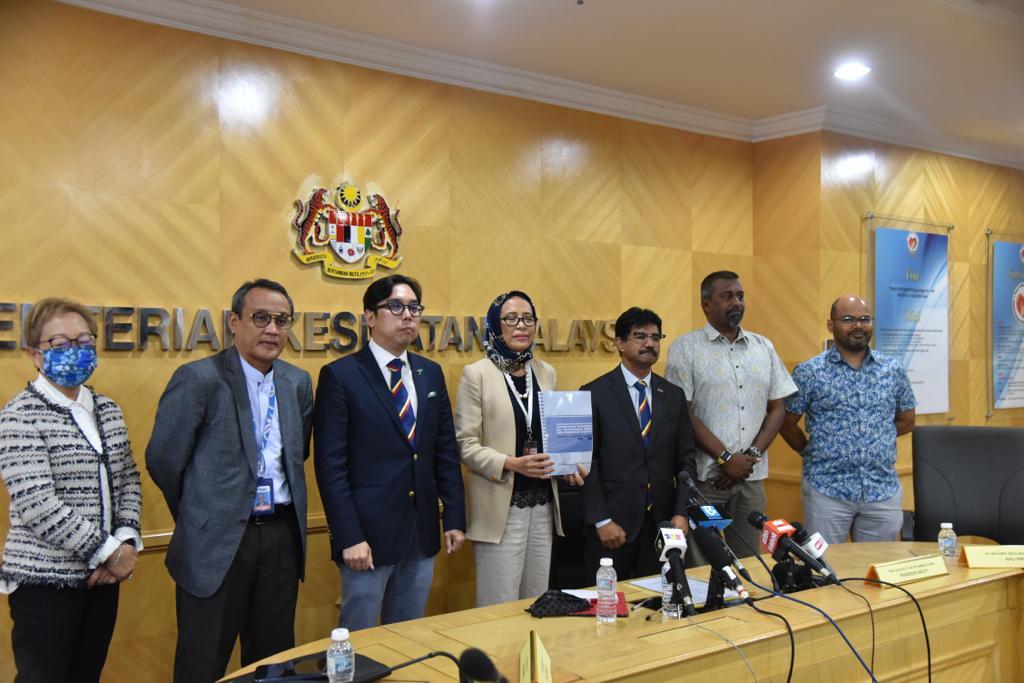KUALA LUMPUR, August 17 – The Healthcare Work Culture Improvement Task Force’s (HWCITF) investigation has uncovered workplace bullying incidents in the Ministry of Health (MOH), but appeared to gaslight bullying victims.
HWCITF – formed as an independent committee to review the work culture in the health care profession in MOH in the aftermath of a Penang Hospital houseman’s death last April – confirmed incidents of burnout, bullying, and a “less healthy work culture” in MOH, but at “different levels” and not occurring in every single MOH health care facility.
“We found that the bullying culture isn’t just happening among house officers, but occurs across all levels of MOH staff, whether directly or indirectly,” HWCITF said in a statement today on its three-month review.
“Among the contributing factors are a lack in competence, skill, and preparedness in performing duties as instructed.”
HWCITF’s press statement contained just one paragraph on the bullying culture in MOH, without citing anecdotes of specific incidents or stating whether the acts of bullying it found were primarily committed by supervisors against subordinates or between peers.
The independent committee’s statement also did not name the public hospitals or state where bullying was most rife; nor did it mention if the HWCITF found incidents of workplace sexual harassment in MOH.
HWCITF chairwoman Prof Siti Hamisah Tapsir, who presented the task force’s findings at a media briefing, told reporters that bullying incidents were found in different states and hospitals, “but not all the hospitals”.
“It doesn’t follow state,” she said, when asked which states had more bullies in MOH.
HWCITF’s report also found that more than 60 per cent of participants of its anonymous survey among 110,411 MOH officers and staff perceived MOH’s work culture to be positive, particularly in patient care, community, and team work.
Siti Hamisah told reporters that 20 per cent felt otherwise, while the remaining 20 per cent stated a neutral stance. HWCITF did not release its survey results, nor the specific questions posed in its long 23-page online poll that was previously sighted by CodeBlue.
HWCITF’s statement that 60 per cent of survey respondents see a positive work culture in MOH also did not break down that finding into specific groups, such as house or medical officers, or by grade in the service.
HWCITF member Sivaramkrishnan Balasubramaniam simply told the press that the task force performed multiple methods of statistical analysis, saying: “With all confidence, we’re quite sure the results are reliable.”
When a reporter asked how many housemen were engaged, HWCITF member Manvir Victor told the press briefing that the task force interviewed “quite a number of housemen”.
“But because we’re looking at health care work culture, we did meet several other hospital staff which consists of nurses, directors, HOD (heads of department), specialists, medical officers and so on. So it was not specifically for the housemen, but we had to look at the entire ecosystem.”
The HWCITF also said that based on a report by MOH’s integrity unit, the task force had no conclusive evidence to link the Penang Hospital houseman’s death last April 17 to workplace bullying.
Siti Hamisah noted that MOH’s integrity unit includes Malaysian Anti-Corruption Commission (MACC) officers and, as such, the unit’s investigation was conducted according to protocol.
“The task force holds this view after evaluating the report by the integrity unit that conducted its own investigation and also based on our engagement sessions with Penang Hospital. To date, we have not received an updated report from the police, so the case is still under investigation.”
She added that HWCITF had interviewed staff, including house officers, at Penang Hospital.
CodeBlue understands that HWCITF will publish a full report, latest by Friday.
The terms of reference that Health Minister Khairy Jamaluddin set for the HWCITF – which was formed last May 13 – were not confined to the bullying culture in MOH facilities, but also covered work culture and human resource management.
In its press statement, HWCITF described its findings and recommendations in mostly general terms, such as saying that human resource management in MOH should be further optimised and that the complaints process in MOH should be improved to maintain the complainant’s confidentiality.
HWCITF also found “incomprehensive” and “inconsistent” compliance with guidelines on house officers’ flexible work system that led to “long” working hours, without specifying how many hours in a stretch that some house officers are made to work.
HWCITF’s 10 recommendations also were mostly described in general terms, such as “review the vision, mission, and core values of the Ministry of Health Malaysia according to current developments” or “study and review all policies and guidelines”.
“The HWCITF believes that a career in the health service is rather challenging and requires individuals who are truly committed and willing to undergo training and workplace challenges. They must be prepared for a high workload and long working hours.”
Besides a survey among MOH staff, HWCITF also held 40 engagement dialogue sessions, nine task force meetings, and two briefings for Khairy.








